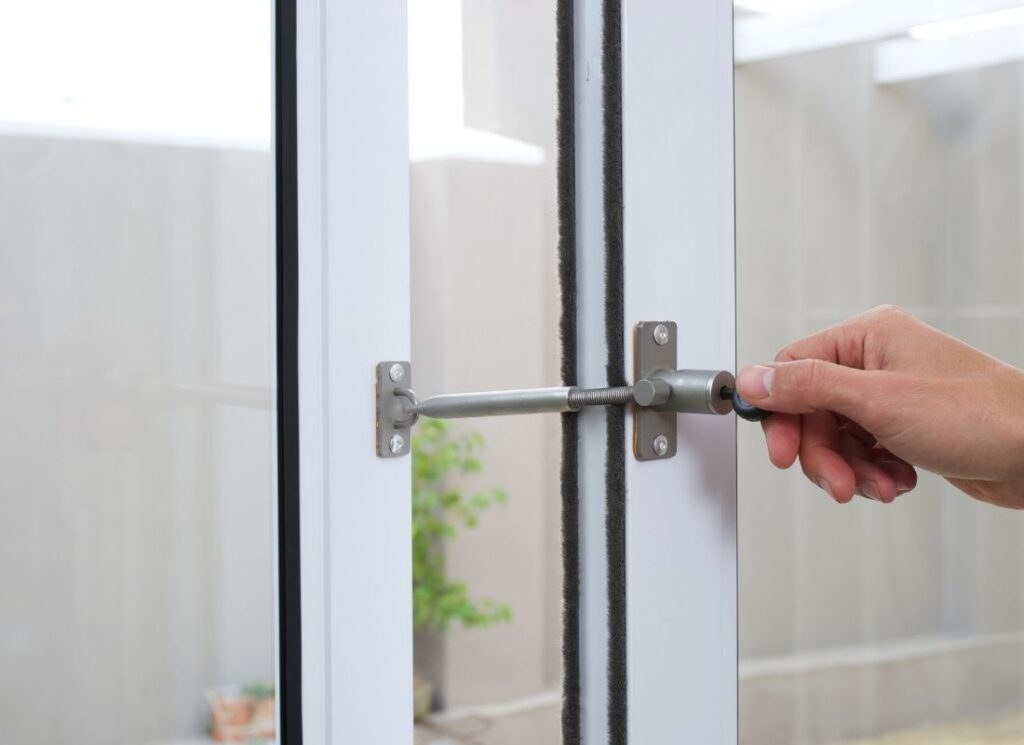While the popularity of communal living has ebbed and flowed over the years, it has once again been thrust into the public eye with renewed interest in sustainable forms of living and high property prices meaning that more and more people are considering this as a viable alternative to traditional living arrangements.
This article looks at what communal living is, how it has evolved to stay relevant, and how you can ensure that you are safe and secure in this type of environment.
What is communal living

Communal living refers to the formation of intentional communities with the goal of sharing responsibility and pursuing common goals and interests.
Intentional communities have been present throughout all of human history. From the ancient tribal communities, through to modern co-living complexes, people have often turned to these types of living arrangements for a wide variety of reasons ranging from shared philosophies to necessity.
In fact, the definition can be extended to a number of forms of housing that are relatively commonplace in our modern world. Students sharing a house; a large apartment building with shared amenities; and even an old age home can all be viewed as forms of communal living.
Types of communal living
Traditionally, communal living arrangements can be divided into four main types. Co-housing communities, which are made up of their own private living spaces, but with certain shared amenities such as kitchens, dining areas or nurseries. Eco Villages, which are similar to co-housing, but with the primary goal being sustainable living. Communes, which are intentional communities that share property. And finally, spiritual communities, which include ashrams and christian, buddhist or hare krishna communities, where the members share a spiritual belief.
In recent years these traditional ideas of communal living have changed, driven by urbanisation and technology into new and exciting forms.
The Co-living Boom
Co-living refers to a type of intentional community, which has seen a renewed interest in recent years. While this term can include any house where 5 or more adults share the space, there has been a boom in urban co-living spaces. These spaces feature small apartments that can be rented for short terms or long term stays, and shared amenities such as gyms, internet access, cleaning services, activities and social areas. This is probably best exemplified by the rise of co-living start ups such as The Collective and Gravity Co-Living.
Eco villages
With people the world over becoming more aware of the impact our lifestyles have on the planet, issues of sustainability and environmentally conscious living have become trending topics. This has led to a renewed interest in the idea of eco villages. Eco villages are communal living spaces that aim to integrate ecological, economic, social aspects of sustainability in order to live in harmony with the natural environment.
Advantages of communal living
There are many reasons why someone might choose a communal lifestyle. And while this type of living arrangement might not be for everyone, it can come with a variety of advantages to not only enrich your life, but also the lives of those around you.
Community
The most obvious advantage of communal living is in the name. Humans are social creatures, we crave companionship and community. In a world that is increasingly giving us digital forms of connection, the need for real human contact has become more and more relevant.
Cost savings
Much of the renewed interest in communal living comes from the economic climate and the increasing cost of living in the UK. And while the cost may vary greatly from one co-living space to the next, the general principle of sharing the costs of amenities and services means that residents get more value out of this system.
Access to Facilities
By pooling resources and sharing costs residents are given access to better facilities than they would be able to afford on their own. This can be quality of life improvements such as a gym or cleaning services, or fast, reliable internet access to enable remote work. In co-housing communities residents often share larger grounds with gardens and communal social areas.
Environmental Sustainability
While Eco Villages are the most prominent example of the sustainability of communal living, it could be argued that all communal living is a greener alternative to traditional single family homes. They take up less space, meaning less environmental destruction for housing. They also reduce residents’ carbon footprint by providing amenities required for work and play, meaning residents don’t need to travel as much as they normally would.
Is communal living safe?
Safety of a communal living arrangement will vary on a case by case basis, but in the context of modern co-living spaces secure buildings with surveillance and the constant presence of community members means that these spaces are relatively safe. In fact, many people choose co-living specifically for the safety benefits.
However, the increased amount of people and public spaces means that there is more opportunity for petty crimes and it is important that you keep your belongings safely locked away if possible.
How to keep your privacy in communal living
Communal living doesn’t mean you are giving up your privacy entirely. Depending on the nature of the communal living arrangement some compromise on personal space will need to be made. However, private time is still an essential part of the human experience, so it is important that you find a way to maintain your privacy in this type of setting.
Establish boundaries
Different people have different ideas of what constitutes acceptable social behavior. For some borrowing things or entering a private space might not be a big deal, and that is why it is important that the individual sets boundaries and rules and clearly communicates these to their fellow residents.
Get to know and trust your co living partners
The best way to establish your boundaries and better understand the boundaries of others is to interact with your fellow residents and get to know them better. Communities rely on mutual respect for open communication and co-living spaces are no different.
Guidelines on each ones schedules
In smaller co-housing arrangements simply understanding the different schedules and routines of your housemates can help in keeping a degree of privacy. Knowing when your fellow residents generally use facilities like the bathroom or kitchen means you can adapt and compromise to find times that work for everyone involved.
Security tips for co-housing in the UK
When it comes to security tips for co-living and co-housing arrangements it is once again a horses for courses scenario. What security measures you take will depend on the nature of your communal living space; how many people there are; whether they are known to you or are strangers; and what home security measures are already in place.
Lock your doors and windows

As a rule you should always keep your windows and doors locked. Because of high foot traffic in these types of spaces you need to be mindful of petty crimes such as theft and the best way to do this is to make sure your valuables are safely locked away. If you need to keep a door or window open for ventilation then it would be wise to invest in a lockable window or door latch such as LockLatch or Minilatch, which will allow you to keep these open, but securely locked in place. These devices can be fitted onto any type of door or window which means they are a one-size-fits-all security solution for the myriad different communal living situations.
Get a large suitcase that can lock
If your stay is short term or you share sleeping accommodation then it is a good idea to get a large, hard-body suitcase with a lock. While this isn’t a foolproof solution as a suitcase is meant to be portable by design, it makes it harder for thieves and is definitely safer than leaving valuables lying around.
Invest in a lockable cupboard
If possible you should also invest in a lockable solution within your room, whether this is a cupboard with a lock, a locker, or a safe. This way your most valuable possessions can be stored securely away, which can be a source of peace of mind in co-living spaces where cleaners and other staff may have access to your room.
Don’t leave valuables laying around

All three of the above tips can be summed up in one sentence “don’t leave your valuables lying around”. Because of the interplay between public and private spaces there will often be opportunities for thieves, so the best defence is to stay vigilant and cautious.
LockLatch- Leave any window or door open, but locked.
If you are currently living in (or are considering moving into) a communal living space, then you should consider making your space safer with a LockLatch or MiniLatch. The versatility of these devices makes them the ideal security solution for almost any communal living situation.

